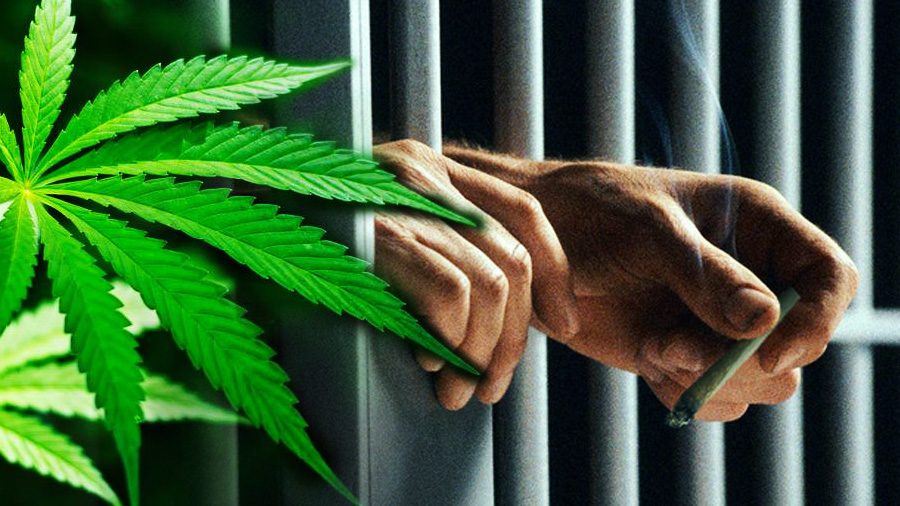Could British prisons be convinced to provide drug-dependent inmates with cannabis?
A British police and crime commissioner says that inmates who are reliant on drugs should be granted free cannabis. North Wales PCC, Arfon Jones, believes that a trial scheme ought to be adopted across prisons in the United Kingdom in an effort to reduce the rate of overdoses.
Aside from potentially helping inmates to recover from addiction, PCC Jones feels that a cannabis trial scheme in the U.K. could contribute to reduced violence and opioid addiction. During a discussion with reporters, he said that justice authorities “should be addressing the causes” of prison violence and self-harming behaviors.
The crime commissioner noted that the synthetic cannabinoid “spice” is easily accessible for inmates and has often been linked to fatal overdoses, whereas cannabis has not been linked to fatal overdoses.
Heroin substitutes are rife in British prisons
A significant portion of criminals detained in British prisons will become addicted to hard drugs before finding themselves behind bars. Because of this, and the fact that heroin is an illegal narcotic, a great deal of prisoners receive heroin substitutes during their jail stint.
While some prisoners rely on buprenorphine and methadone, others receive powerful analgesic prescription drugs, including gabapentinoids and pregabalin. Illegal substances are also frequently smuggled inside jail institutions.
“If they’re on opioids, why can’t they be prescribed cannabis?” said the 66 year-old former police officer. “At the end of the day, opioids are a damn sight more dangerous than cannabis. It would be an improvement on the illegal spice smuggled in by corrupt prison officers too.”
Hundreds of police officers and associated staff members working in British prisons have faced the consequences for sneaking prohibited items within the confined walls. Examples of smuggled products that are commonly confiscated inside English and Welsh jails include hard drugs, cell phones and tobacco.
Moving forwards, Jones wants a regime to be implemented that would establish a suitable framework for cannabis trials to begin at various prisons, one of which is close to the Wrexham-based crime commissioner’s home — HMP Berwyn. The idea was initially put forward by pharmacologist Dr Stephanie Sharp in 2018.
“Let’s supply cannabis in controlled conditions and see if offences reduce. The aim of the game is to make prisons safer. If they’re serious about reducing violence in prisons they should be addressing the causes and that’s psychoactive substances. Plus there’s a whole range of issues that cannabis would be geared to reduce the risk of,’ said Jones.
Prison drug finds and related deaths are on the rise in the U.K.
The latest data from the Office for National Statistics showed that 88 drug-related fatalities occurred in British prisons between the years 2008 and 2016. Most of these deaths occurred as a result of overdosing on benzodiazepines, heroin and methadone.
From 2019 to 2020, drug finds in British prisons jumped 18 percent to 21,575; psychoactive substances acted as a catalyst for the growth. The Office also noted that, in recent years, deaths have spiked amid the circulation of a synthetic drug called “spice”.
Data pulled from the U.S. medical cannabis market shows that granting opioid users plant access can have a monumentally positive impact. For example, a John Hopkins University research study revealed that, between the years 1999 and 2014, opioid overdose fatalities dropped by 25 percent in states that had legalized the plant for medical purposes.
While cannabis remains illegal for recreational use in the U.K., it was legalized for medical purposes – in the form of whole extract cannabis oil through the National Health Service (NHS) – in 2018.








